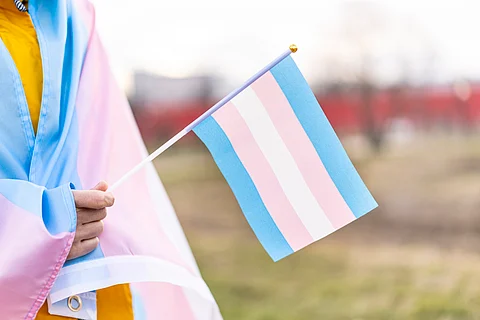

An Australian court delivered a groundbreaking ruling on the definition of a woman on August 23, 2024. The case, involving transgender woman Roxanne Tickle, has significant implications for gender identity and the legal rights of transgender individuals.
The Federal Court of Australia’s decision, which came after a lengthy legal battle, determined that a woman is an individual who identifies as a woman. This definition, which goes beyond biological sex, marks a significant shift in Australia’s legal landscape and could potentially influence similar cases in other jurisdictions. The case, known as Tickle vs Giggle, is the first time a federal court in Australia has heard allegations of gender identity discrimination.
The case involved Roxanne Tickle, a transgender woman, suing Giggle for Girls Pty Ltd and its chief executive officer, Sally Grover, for gender identity discrimination. Tickle filed the lawsuit, claiming that Grover discriminated against her in September 2021, when she was unlawfully prevented from using the Giggle App — a social platform marketed exclusively for women — due to her transgender status.
Tickle argued that her membership was revoked due to persistent misgendering, which caused her significant emotional distress. She sought damages of A$200,000 (about Rs 17 lakh) and accused Grover of fostering online hate against her through public statements.
The court was told Tickle had undergone gender-affirming surgery and hormone treatments, was identified as female with family, friends and employers and used women’s restrooms and shops, Australian news outlet SBS reported.
While Grover admitted to excluding Tickle from the app in court, her defence was rooted in sex, arguing that her platform lawfully excluded men and Tickle, being biologically male, was not entitled to access the platform.
Central to this case is the complex question — who is a woman? — and how legal definitions of sex and gender identity are interpreted. The app uses gender recognition software to screen out men and Tickle’s access was removed after Grover maintained that Tickle was biologically male. Grover, a self-described “TERF” — trans-exclusionary radical feminist — argued that sex is an immutable biological fact and rejected the idea that transitioning, surgery and changing legal documents could make someone born male into a woman.
The Federal Court’s decision, however, rejected Giggle’s argument, with Justice Robert Bromwich noting that case law has consistently recognised that sex can be changeable and not strictly binary. The court ruled that Tickle had been indirectly discriminated against, with the decision putting emphasis on gender identity protections under Australian law. Giggle was ordered to pay A$10,000 (about Rs 8.4 lakh) in damages to Tickle along with legal fees, marking a significant victory for transgender rights in Australia.
The case has larger implications for the global discourse on gender identity versus sex-based rights, particularly in the context of single-sex spaces like women’s social groups, bathrooms and shelters. Giggle’s defence heavily leaned on Australia’s commitment to the Convention on the Elimination of Discrimination Against Women (CEDAW), an international treaty that protects women’s rights. Grover argued that Australia’s ratification of CEDAW obligated the state to protect single-sex spaces, including apps like Giggle.
Tickle argued that the respondents (Giggle and Grover) discriminated against her both directly and indirectly by denying her full access to the application. She contends that the application’s policies violated her rights under the Sex Discrimination Act, 1984 (SDA). Specifically, she alleged that she was blocked from accessing the application because she did not meet its requirement of appearing as a cisgender woman, which constitutes indirect discrimination.
The respondents, however, denied any wrongdoing, arguing that their actions were not discriminatory but were based on their belief that gender should be defined solely by a person’s sex at birth.
The court focused on indirect discrimination, finding that Giggle’s requirement for users to appear as cisgender women imposed a condition that disadvantaged transgender women like Tickle. The court also noted that Tickle is legally recognised as a female on her official updated Queensland birth certificate.
Grover’s counsel had further argued that the gender identity discrimination provisions of the SDA were unconstitutional. The court, however, rejected this argument, and said the provisions were valid.
The court found that Tickle was entitled to a declaration of contravention, general damages of A$10,000 and the legal costs of the case. However, the court denied her claim for aggravated damages and an apology. The court also held that Giggle was liable for the discrimination, as it had imposed the discriminatory condition and failed to take reasonable steps to address the issue.
Tickle, spoke outside the Federal Court in Sydney after the decision, reiterating that for the most part, she had been able to live authentically and lead a normal life, SBS news reported.
“However, a small group of people have taken it upon themselves to deny my identity, making my life a misery. This case, along with the unlawful and discriminatory exclusion from the Giggle app, has robbed me of the last three years of my life,” she was quoted as saying.
Tickle expressed that trans and gender-diverse individuals are frequently subjected to “hate and venom simply for being who we are.”
“Sometimes it's hard to remember that not everyone is like that,” she added, according to the SBS report.